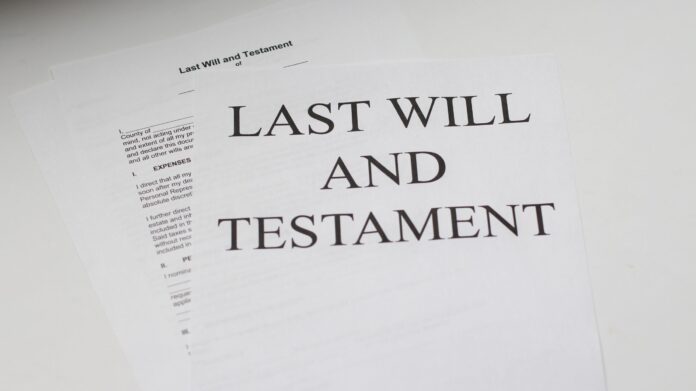
Q: Some years ago my then partner made a will leaving me €100,000, with the remainder to go to his best friend. However, we married the following year and the will was never changed. My husband died suddenly recently and his best friend is now claiming that he is entitled to the majority of my husband’s estate, which is sizeable and certainly is worth far more than €100,000, and consists of a house and five acres of land. Is there anything I can do to change the will?
Dear Reader,
If you know who your husband’s solicitor was, the first thing you need to do is contact them to establish whether your husband made a will after you got married.
In addition, you should also check whether any property or bank accounts were held by you jointly. If you were joint owners of an account or property, it would come to you regardless of your husbands will or otherwise. This would be in addition to any entitlements you might have to his estate. If both your names were on the house and the land then again this would go to you automatically.
In most circumstances, entering into a legal marriage revokes any wills previously made. However, Section 85 of the Succession Act provides that if a will was made in contemplation of a marriage that it may stand. This clause may be interpreted narrowly by the courts. If the will or the notes made by the solicitor do not explicitly state that the will was made in contemplation of marriage, it may very well be set aside.
If the will were set aside, your husband would be classed as having died intestate, i.e. as a person who died without a will. The rules governing intestacy will determine what happens to your husband’s estate.
If you have children, you are entitled to two thirds of your husbands estate, and your children would be entitled to one third divided equally between them. If you and your husband do not have children, you would be entitled to the entirety of his estate.
It would be important to note that if the will is set aside in its entirety, your husband’s friend would not be entitled to any share of your husband’s estate, regardless of what was said in the will.
If the will is not set aside, you are still entitled to what is known as the “Legal Right Share” of your husband’s estate. The share is one third if you have children, and one half if you do not have children. The balance of his estate would go to his friend in accordance with his will.
You will see now why it is very important for you to contact your husband’s solicitor.









